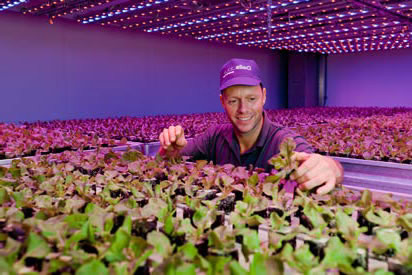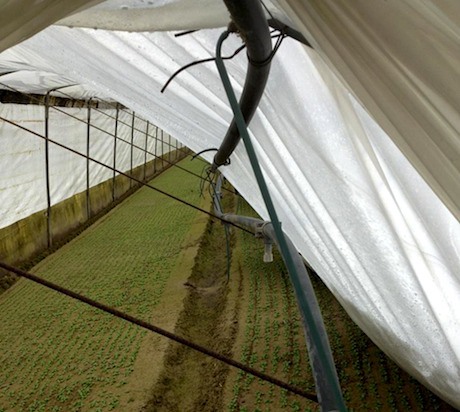Fruit Logistica Berlin is always a highlight at the beginning of February, and 2013 was no exception. Staay Food Group was presented with the Fruit Logistica Innovation Award 2013 for their "City Farming" system. Custom greenhouses with specialised LED lighting, allows seeds to be cultivated into young plants within 35 days independently of their natural season.

Speaking of innovation, the Nergi® kiwi was presented in Europe by Sofruileg mid-month. About the same size as a grape, Nergi® has a smooth, thin, edible skin, while its pulp, which resembles that of the kiwi fruit, is sweet and slightly acidulous. Sofruileg, at that time, approved producers in Europe and provided its marketing expertise to the two Nergi® commercial operators, Primland and Fruitworld.

Unfortunately, the month did not pass without some weather related damages. A snow storm that hit the Venice area on 11th February 2013 damaged 250 greenhouses, for a total of €2 million. The snow, which was wet and heavy, caused many structures to collapse.

Just a few weeks later, Italy was hit again, this time in Sicily, when violent hailstorms hit Catania. Etna city centre was transformed by the a torrent: shops were flooded and cars and motorbikes were dragged against Palazzo dei Chierici, together with trash cans, tables and chairs from the bars along the street. Over 50 millimetres of water fell in just half an hour. To make matter worse, Mount Etna started to erupt. Following Etna's eruptions, there was abundant volcanic "sandfall" in the area between Acireale, Giarre and Santa Venerina. At least 4-5 cm of ash was deposited causing further damage. Open fields, fruit plants, lemons and vegetables were hit the most, as Etna's "sand" is really abrasive. A Sicilian producer at the time said: "the real damage does not come from ash falling on fruit, but rather from the rubbing that occurs between fruits, which causes them to rot."

February 2013 was also a month of firsts, with the first US pears reaching China. Nick Naseri from Dalian Yidu Group said at the time: “Now we are waiting for apples to be approved, and we hope that will happen in the next two or three years,” he said. “We hope both sides can reach an agreement because it would really benefit all parties involved including U.S. farmers, exporters, and importers.”
 The month ended with bad news for South African citrus growers. When asked if there should be different measures for different measures for different EU countries, Justin Chadwick, CEO of the South African Citrus Association said, "Yes, even the EFSA report (still contested by South Africa) shows the risk is to three small areas in the south of the EU – the measures at the moment are not proportional to that risk."
The month ended with bad news for South African citrus growers. When asked if there should be different measures for different measures for different EU countries, Justin Chadwick, CEO of the South African Citrus Association said, "Yes, even the EFSA report (still contested by South Africa) shows the risk is to three small areas in the south of the EU – the measures at the moment are not proportional to that risk."